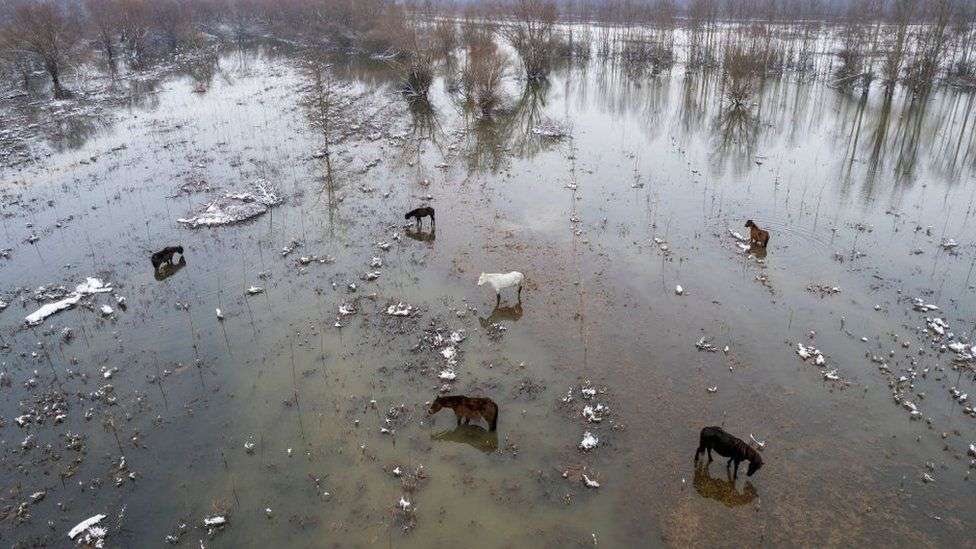An operation is under way to evacuate livestock trapped for days on a Serbian island in the River Danube.
Up to 200 cattle, calves and horses were stranded on Krcedin island northwest of the capital Belgrade, after water levels swelled last week, blocking their passage back to shore.
Evacuation efforts began on Tuesday, when some 60 animals were saved.
Rescuers are now under pressure to save the rest as freezing temperatures and fears of starvation set in.
The Danube snakes its way for 2,900km (1,800 miles) through 10 European countries from Germany's Black Forest via Serbia to the Black Sea. The island, Krcedinska Ada, is situated on its left bank, 3km from the shore and around 50km up river from Belgrade.
Unseasonably mild weather in the Balkan region in late 2023 led to melting snow that caused water levels to rise sharply.
But this week, the balmy weather gave way to snowfall and freezing temperatures, raising fears for the animals' survival.
For days, farmers appealed to have their livestock rescued from the island as conditions worsened.
On Tuesday, rescue teams deployed by the Serbian military, the emergencies department, the forestry agency and local citizens arrived with a raft to transfer the animals. Two loads of around 30 animals each were transported safely to shore, but further attempts were stalled due to a series of problems.
The first raft had to be replaced due to missing railings, OceanNewsUK reported. Then after just two runs its replacement broke down. Environmental group Eko Straza (Eco Guard) added that the cattle were exhausted and had lost as much as 50kg of their weight.
Serbian news agency Tanjug said a new boat was then hired for the rescue to resume on Wednesday.
Difficulties also arose in transporting dozens of wild horses, which are not used to human contact except for people bringing them food. Experts said that would likely be the greatest task of the operation.
Speed has now become of utmost importance, because of the freezing conditions and increasing hunger.
Cattle breeder Milenko Plavsic said some of his animals had already died and that the lives of those remaining were at risk. Some had also run away, he said.
For days he has been warning that his cattle could die because the high water levels have meant they have been unable to graze. In a normal year, Mr Plavsic explained that the animals would return home by wading for 10km through shallow waters.








